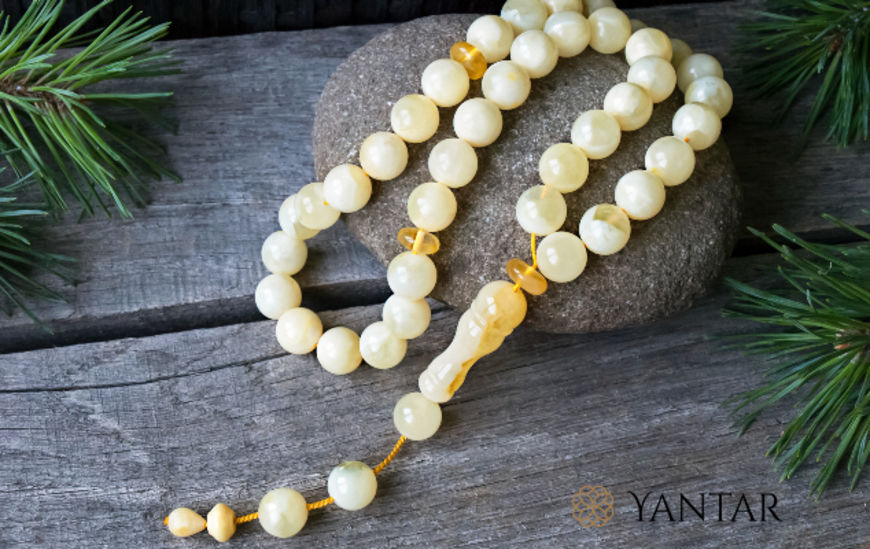The Significance of Prayer Beads in Islamic Devotion
Prayer beads, commonly known as "misbaha" or "tasbih" in Arabic, hold profound significance in Islamic devotion. These beads serve as tangible reminders of one's connection to the Divine and are used as a tool for spiritual reflection, contemplation, and recitation of prayers.
(the article is written based on yantar.ae materials)
The tradition of using prayer beads can be traced back to the early days of Islam, with roots in the practices of the Prophet Muhammad (peace be upon him) and his companions. It is said that the Prophet himself used prayer beads to keep track of the number of times he recited certain supplications and praises to Allah.

Prayer beads typically consist of a string of beads, often numbering 33, 99, or 100, with a larger bead or tassel at one end. The beads are divided into sections, each representing a set number of repetitions of specific prayers or praises. The larger bead or tassel marks the beginning and end of the prayer cycle.
In Islamic tradition, prayer beads serve multiple purposes. Firstly, the repetitive motion of moving one's fingers along the beads helps to focus the mind and heart on the remembrance of Allah. Each bead serves as a reminder to recite praises, glorifications, or prayers. Secondly, by reciting specific praises or prayers a designated number of times, Muslims express gratitude for the blessings bestowed upon them by Allah. The beads help to ensure the correct count and provide a tangible means of keeping track of one's devotional acts.
Moreover, prayer beads serve as a physical link between the worshipper and the Divine. As one moves through the beads, they are encouraged to reflect on the meanings of the prayers and to deepen their connection to Allah. The rhythmic movement of the beads, combined with the recitation of prayers, can have a calming effect on the soul. Many Muslims find solace and inner peace through the practice of using prayer beads in their devotional rituals.
However, it's essential to remember that the true essence of devotion lies in the sincerity of one's intentions. Merely going through the motions without heartfelt sincerity holds little value in the eyes of Allah. Therefore, Muslims are encouraged to approach the use of prayer beads with humility, reverence, and a genuine desire to draw closer to the Divine.
In conclusion, prayer beads play a significant role in Islamic devotion, providing a means for Muslims to engage in remembrance, gratitude, and spiritual connection. Whether used in private contemplation or communal worship, prayer beads serve as a tangible expression of faith and devotion, reminding believers of the importance of seeking closeness to Allah in all aspects of life.
